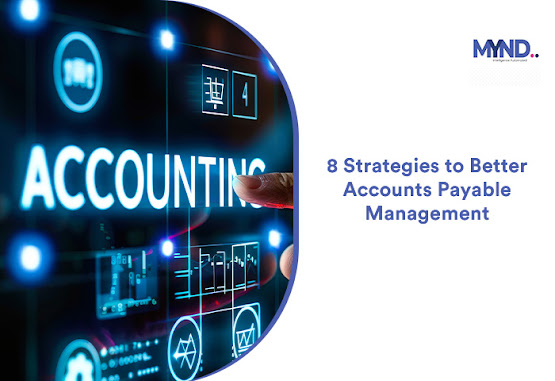Vendor Compliance Audit: Ensuring Adherence & Quality
 |
| Vendor Compliance Audit: Ensuring Adherence & Quality |
Conducting a vendor compliance audit is a crucial step to safeguard your company’s reputation and ensure due diligence. This audit process helps identify potential vendor risks that could harm your company’s image. By addressing gaps or risks early, you can prevent reputational damage and legal issues. Through a vendor compliance audit, organisations gain insights into their third-party ecosystem and shield themselves from potential liabilities arising from vendor activities. This systematic review assesses a vendor’s policies, procedures, and practises to ensure alignment with the organisation’s standards and regulations. The audit evaluates the vendor’s capacity to meet the organisation’s requirements and expectations.
Types of Vendor Compliance Audits
There are two main types of vendor compliance audits:
· Internal audits: Conducted by the organisation’s own internal audit team
· External audits: Conducted by a third-party auditor
External audits are often preferred because they provide an independent and objective assessment of the vendor’s compliance.
A compliance-centred vendor audit addresses privacy concerns, evaluates risks, and ensures meticulous documentation. It focuses on vendors with higher risks. With the rise in vendor fraud, audits play a vital role in reinforcing your organisation’s strength and reducing liabilities.
Vendor Compliance Audit — Why do Businesses Need Them?
In modern times, vendor audits have become a widespread best practise in various industries. They assist in adhering to strict regulations concerning legal, financial, cybersecurity, and data privacy matters. A robust vendor management policy involves consistent risk evaluations to guarantee effective vendor oversight. These assessments uncover potential risks associated with vendor compliance, finances, operations, and cybersecurity.
Apart from these, vendor compliance audits are important for a number of reasons:
· Protecting the organisation from financial and reputational risk
· Ensuring that the vendor is meeting the organisation’s quality standards
· Ensuring that the vendor is complying with all applicable laws and regulations
· Identifying any potential areas of risk or non-compliance
· Improving the overall relationship between the organisation and the vendor
Vendor Compliance Audit — Why Are They Crucial?
Performing a vendor compliance audit is a crucial step in ensuring diligent operations. It identifies potential vendors that could negatively impact a company’s reputation. This audit mechanism aids organisations in uncovering gaps or risks that, if ignored, might result in reputational harm and regulatory issues.
Vendor compliance audits can provide a number of benefits to the organisation, including:
· Increased confidence in the vendor’s ability to meet the organisation’s needs
· Reduced risk of financial and reputational damage
· Improved quality of goods and services
· Increased compliance with laws and regulations
· Identification of potential areas for improvement
· Improved relationships with vendors
How does a Vendor Compliance Audit help Ensure Adherence & Quality?
Vendor compliance audits can help ensure adherence and quality by:
· Reviewing the vendor’s policies and procedures to ensure that they are in line with the organisation’s standards
· Evaluating the vendor’s practises to ensure that they are being implemented effectively
· Testing the vendor’s controls to ensure that they are effective in preventing and detecting non-compliance
· Interviewing the vendor’s employees to get their insights on the organisation’s compliance programme
· Conducting a site visit to the vendor’s facilities to observe their operations firsthand
A vendor audit may also include the following:
· Checking the vendor’s books and records
· Site visits
· Questionnaires, phone, or in-person interviews
· Background verifications
· The signing of non-disclosure agreements (NDAs)
· Evaluating contracts, policies, and other related documents
· Security clearances
Risks that Rise from Not Having a Vendor Compliance Audit
Not having a vendor compliance audit in place can expose your company to fraud and financial losses. Organisations that do not conduct vendor compliance audits are at risk of a number of problems, including:
· Financial loss due to non-compliance
· Damage to the organisation’s reputation
· Legal liability
· Regulatory fines
· Increased risk of fraud and abuse
· Decreased customer satisfaction
Factors to Consider When Onboarding a Vendor Compliance Auditor
When onboarding a vendor compliance auditor, it is important to consider the following factors:
· The vendor’s experience and expertise in the relevant industry
· The vendor’s track record of compliance
· The vendor’s size and resources
· The cost of the audit
· The level of detail and coverage of the audit
· The vendor’s willingness to cooperate with the audit
Why MYND is the Best Partner/Vendor for Vendor Compliance Audit
MYND is a prominent compliance services provider in India. Leveraging their self-developed Compliance Automation Platform, skilled front-end team, and shared service centre, MYND aids businesses in efficiently and affordably handling organisational compliance. They possess a track record of enhancing compliance programmes and minimising risks for various organisations.
Conclusion
To sum up, a vendor compliance audit is a crucial tool for maintaining quality and adherence in business operations. It forms a vital part of risk management for any organisation. Regular audits help ensure vendors meet standards, avoiding financial and reputational risks. Partnering with a trusted provider like MYND safeguards your business from potential liabilities. Investing in a vendor compliance audit is a prudent step to secure your business’s future.



Comments
Post a Comment